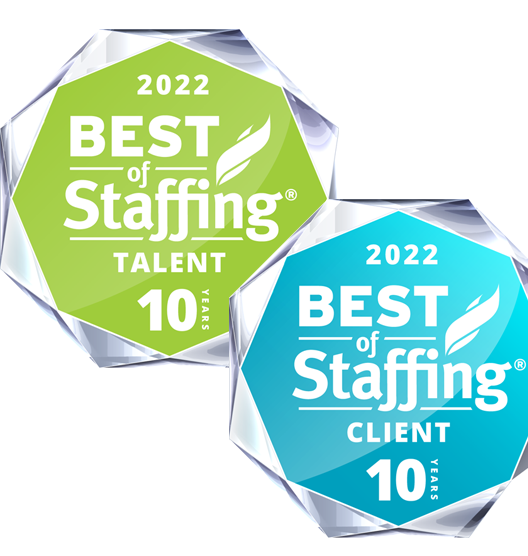Make Like a Boy Scout: Prepare to Improve the Quality of Your Hires
"Be prepared."
This may be the Boy Scouts' motto, but the saying is also quite fitting for hiring managers. Why? When it comes to interviewing, preparation is critical. Failing to adequately do so can lead to a host of interviewing problems, including:
- Biases – quick judgments can interfere with the quality and accuracy of applicant assessment.
- Inconsistencies – lack of structure and process across interviews may compromise interviewers' abilities to determine the best candidate.
- Inefficiencies – inadequately trained interviewers are prone to ask improper questions and use poor evaluation techniques.
The result? Ineffective interviews that ultimately yield--you guessed it--bad hires.
But by using more effective interview methods, you dramatically increase your odds of hiring a top performer. So make like a Boy Scout. Prepare a structured, consistent interview process to ensure hiring decisions are based on relevant, sound information--and not merely first impressions. Use these tips to more effectively prepare for interviews and improve the quality of your hires:
- Analyze the position to be filled.
Assess what the candidate will need in order to be successful in the position. Consider: skills, knowledge, type of experience, core competencies (e.g., decision making, customer responsiveness, problem solving, etc.), attitude, corporate culture fit, and even interpersonal style.
- Define the job.
Develop a thorough job description, including the key roles and responsibilities. To develop a comprehensive picture, review performance evaluations of top performers in this role and ask existing team members what it would take for the new hire to succeed.
- Develop standard interview questions.
Use the requirements created in the previous steps to make a list of standard interview questions. Ask these same questions of all applicants for the position. Before interviews begin, determine ideal/acceptable responses for each question, to increase objectivity and improve the accuracy of your ratings. The structure you create now will yield better quality judgments once the interviews are over.
- Identify additional details needed to select the best candidate.
Before interviewing, review additional information you will need to collect or verify, such as: proof of certifications or licensures, records of education, lists of references, etc.
- Establish clear standards for non-verbal cues.
Body language, eye contact, posture, appearance and other non-verbal cues all impact the first impression a job candidate makes. But while these cues can be helpful in making a decision, they are also easy to manipulate and prone to subjective interviewer bias. To avoid these biases and personal judgments (especially when multiple interviewers are involved), establish clear standards for non-verbal cues which are appropriate for your corporate culture and employee/customer expectations. Once you ascertain that a candidate meets your minimum standards, you can shift attention to the true substance of his responses.
- Devote adequate time to both acquire and convey information.
An interview is two-sided. You must learn about the applicant's qualifications, while the candidate must learn about the job, organization and culture. Make sure you create an interview plan that allows time to accomplish both objectives.
- Minimize interviewer inconsistency.
If you can't personally conduct every interview, you should train interviewers to enhance consistency. Interviewing styles and effectiveness vary greatly, depending on personality, confidence and amount of formal training. Some interviewers excel at asking questions; some are great ambassadors for your company; some are very detail-oriented and systematically process responses. But unfortunately, few are strong in all these areas. To improve consistency, require interviewers to cite specific candidate statements to back up their evaluations and/or conclusions. Train them to support their ratings with examples--rather than recording opinions, impressions, or hunches.
- Ask the recruit why he wants the job.
Our current job market is flooded with the type of applicant who indiscriminately shoots off résumés in response to any posting that matches his keyword search--all in desperate hope of landing any type of interview. If a recruit can't tell you why he wants to work for your organization, you probably don't want him on your team.
- Make a good first impression on the candidate.
While you are evaluating a candidate, the candidate will be sizing up you and your company. Increase the likelihood that a top performer will accept your job offer by making a positive first impression: respect the candidate's time by being on-time and prepared for the interview; supplement the interview with written or online information about the company and/or position; allow time for follow-up questions.
- Plan multiple interviews.
Always conduct at least two interviews (three for higher level positions). Why? Recruits may be able to fool you in one interview, but the chances of them misrepresenting themselves successfully across multiple interviews are greatly diminished. In addition, a more rigorous process will help weed out those candidates who are apathetic and/or unreliable.
- Hold a post-interview review meeting.
Establish a formal process for finalizing the interview process and making a hiring decision. Provide a form interviewers can use to summarize each candidate's interpersonal skills, cultural fit, competency evaluation and technical knowledge. Give each interviewer equal time to share feedback and make recommendations. The primary decision maker/hiring manager should give the last report, after which you can begin open discussions about a hiring decision.
|





